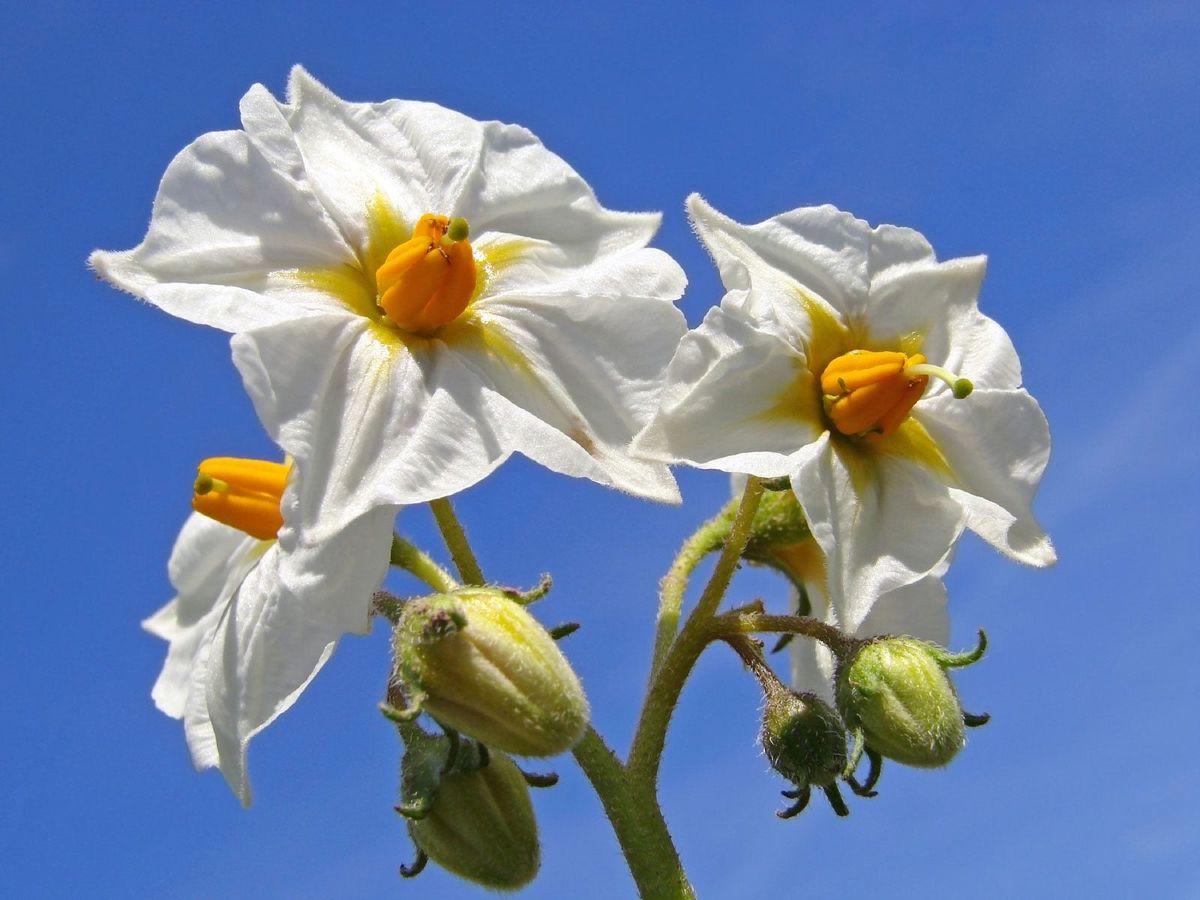My web stats attracted me here. My site (Cultivariable) is linked above.
Your odds of getting a dangerously poisonous potato from the seeds of domesticated potatoes are very low. Any that are poisonous would be immediately recognizable by their bitterness and adults would have to eat a lot before even minor symptoms like diarrhea kick in. There are quite a few potato breeding hobbyists out there, testing out hundreds or thousands of new seedlings each year, and I've never heard of a single one landing in the hospital. The only place where you would want to exercise some caution would be feeding untested varieties to children, since they might not recognize the bitterness and smaller body size makes them more vulnerable to poisoning of all sorts. But if you taste the potatoes first, nothing to worry about.
Supermarket potatoes, or any other potatoes, can become poisonous when exposed to sunlight (greening or becoming darker purple if blue), when fed upon by insects, or when diseased. These conditions tend to intensify the glycoalkaloid concentration up to a limit imposed by the variety. Some can develop higher concentrations than others, so there are potatoes that can become green and remain safe, while others can become bitter and cause illness if eaten in large amounts.
The problem with planting your own potatoes over and over is disease. This is particularly true with supermarket potatoes. Certified seed potatoes are grown in programs with pretty tight tolerances for disease in the tubers, but even they still pass some viruses that get worse over time. Supermarket potatoes have no limits on disease and they almost always carry viruses. Some will also carry fungal or bacterial diseases. In some cases, these diseases are effectively permanent in your soil. For example, if you introduce powdery scab from a grocery store tuber, you'll have it forever because it lives in soil organisms that feed on the potatoes. They persist for years after you stop growing potatoes. The tolerance for powdery scab in certified seed is very low, so it is much less that you would introduce it that way. Viruses are also difficult to eradicate because they live in the tubers and potatoes tend to volunteer readily, meaning that your new crop is frequently exposed to the old plants. Many potato viruses are transmitted by aphids, which can easily carry them farther than most people would rotate their plantings. People tend to experience a loss in yield over time and do not recognize that the problem is the accumulation of viruses in the potatoes.
As for growing from seeds, it is not practical for most people, but it is a lot of fun and it is much easier to turn out good varieties than the conventional gardening book wisdom would have you believe. If you already have some seeds, why not grow them? One major practical advantage of true potato seeds is that they rarely transmit disease, so if you select your own varieties from seed and don't expose them to store bought potatoes, you can grow them productively much longer, since they will stay disease free until something is carried on the wind into your garden. If you find it interesting and you are on Facebook, check out the Kenosha Potato Project, where a lot of hobby potato breeders congregate.
You might also find these useful:
Potato glycoalkaloid toxicity:
https://www.cultivariable.com/potato-glycoalkaloid-toxicity/
About potato berries:
https://www.cultivariable.com/potato-what-you-should-know-about-fruits-on-your-potato-plants/
Basics of growing potatoes from true seed:
https://www.cultivariable.com/the-absolute-beginners-guide-to-true-potato-seed-tps/


